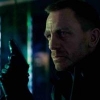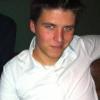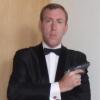'An electric thunderstorm exploded in my head'
Someone had told me three years ago that I could go from being happy and healthy one day and in less than a week descend into the most painful hell, arriving almost at death’s door, I would never have believed it. Yet this is exactly what happened in January 2007 when I suffered from a bleed in the brain that almost killed me.
At the time, I was in Los Angeles, staying with close friends on the way back home to London from a restorative Christmas holiday in Mexico with my husband Hugh [Hudson, the film director whose credits include Chariots of Fire, Greystoke and Revolution].
It had been 20 years since I’d played the cellist Kara Milovy in the Bond film The Living Daylights, starring alongside Timothy Dalton. I was now in my 40s; I smoked and enjoyed my daily glass of wine, but otherwise I was fit and healthy.
I had been suffering from painful headaches for some time but had put them down to the stress of London life, something to do with my hormones changing or possibly an allergy. When they struck, I didn’t experience migraine symptoms such as seeing stars and spots, but I was extremely sensitive to sound and light. I would have to retreat to bed until they passed. I fell into the habit of accepting them, learning to accommodate the pain.
One morning in LA, we arranged to meet a friend of Hugh’s for breakfast. It was a grey, wet day; I felt tired and headachey, even though I had been to bed early the night before. For comfort, I ordered bacon, eggs, two cappuccinos, and I think even porridge.
Afterwards, Hugh had meetings so I drove myself back up the hill to our friends’ house at the top of the canyons. We were staying in the guest house on the property, next door to a small gym room. Although I still felt a little off colour, I decided to exercise anyway – one of the great joys of being in the canyons in LA is to go hiking, but as it was raining, I used the Stairmaster instead. As I started to build up speed, suddenly a wave of heat swept through my head, and I began to feel like everything was in slow motion.
I went completely deaf, and then what felt like an electric thunderstorm exploded in my head. I fell off the machine screaming with pain. Excruciating, sharp strikes of lightning zapped my brain – it lasted five minutes but felt like an eternity. It was the worst headache of my life but somehow I staggered to the main house, screaming for help. My friends weren’t home and the maid upstairs couldn’t hear me because she was vacuuming. I was yelling, yelling, yelling, but no one came. As I lay on the kitchen floor, having convulsions, I felt like my brain was going to explode.
My friend Steven arrived home to find me lying on the kitchen floor, dripping with sweat. I was too ill to describe what had happened to me and so he simply assumed I’d overdone it on the caffeine that morning and put me to bed in the guest house. He was concerned but he had an appointment to get to, and so I was left alone. There was
no phone line in the guest house and no reception on my mobile. I couldn’t reach Hugh, so spent the rest of the afternoon crawling from the bed to the bathroom to projectile vomit. The pain was unbearable. I could barely move, and was now shivering uncontrollably under the sheets.
In the morning Hugh took me to a young doctor recommended by a friend. He thought I might have encephalitis or meningitis. I felt stunned with panic – my father had contracted meningitis shortly before I was born and the disease had destroyed his brain. It made him an invalid, and unable to speak, until he died 35 years later.
The doctor thought it was a viral infection, so he sent me home with painkillers and told me to go to bed until it passed. As we drove back to our friends’ house, the light and the city noise hurt my head. I felt faint and desperate to lie down.
For three days, I struggled with the blinding pain. I couldn’t eat and lost several kilos. I didn’t have the energy to communicate. All I wanted to do was close down, be still and go to sleep. I knew I was getting worse but had no strength to do anything about it.
After the third day, I persuaded Hugh to go back to London. I know this will sound weird, but he was due to leave a week before me anyway, and although he wanted to stay, the mere rustling of sheets or the sound of him walking in the room hurt my head. I just needed stillness and darkness, so I insisted that he went.
The day Hugh left, things hadn’t improved, so the doctor referred me to a neurologist at Cedars Sinai hospital, who sent me for a CT scan. Somehow I drove myself back from the scan to the house and prayed that night that I would either wake up from this nightmare the next morning or not wake up at all.
The next morning the doctor called to say the scan was clear but if I felt worse to go to A&E. After being violently ill again, I called a friend who took me back to the hospital. I had to wait for two hours, my head pounding with pain and children around me screaming. At first, the hospital wouldn’t accept me because they didn’t think I had health insurance but they finally took me in on the young doctor’s insistence.
I was put on a drip and begged for morphine to relieve my pain. After midnight, I was wheeled up and down different corridors for all sorts of tests. In the early hours of the morning I was given a lumbar puncture. As they were about to insert the needle, I remember being so frightened, but a wonderful nurse held me and told me to look at her as the needle pierced my spine.
I heard the doctor say ‘positive’ but I didn’t know what that meant. ‘It means that there is blood in the spine, which means there is most probably blood in your brain,’ he explained. I had suffered from a subarachnoid aneurysm bleed – where a weakness in the wall of one of the arteries in the brain becomes enlarged, causing the body to release large amounts of adrenaline which causes a sharp increase in blood pressure, placing the heart and the fluid in the lungs under substantial strain.
I started to drift in and out of consciousness, and to vasospasm (where the blood vessels contract with spasms, damaging the brain tissue and often leading to stroke), so the doctors decided to operate. The procedure lasted four hours during which they clipped the neck of my aneurysm to prevent a second bleed. I was in safe hands with both my neurosurgeon Dr Michel Levesque and the supervision of Dr Keith Black, a world-renowned neurosurgeon.
When I woke up after the surgery, Hugh appeared in the doorway, having flown straight from the UK, looking terrified. I had a nine-inch scar on my temple, extensive facial swellings and a hole in my skull. I was lucky to be alive.
My recovery was a slow process. A dear friend, Barbara, lent me her house in a peaceful area of Los Angeles to recuperate for the next few months. Her pet rabbit, Bunbun, helped me through my recovery but I’m afraid it also completely destroyed Barbara’s garden.
During the first two months, my head was fragile and I had continuous headaches. I couldn’t sleep and the many drugs I was taking sapped the life out of me. I had to walk every day; at first ten minutes, then 15, 20. I used to watch local children play basketball on a nearby court and envy their health and vitality. I vowed never to take my health for granted again.
Four months later, I finally came home but felt disconnected from some friends because they hadn’t seen what I had been through. They couldn’t see a physical weakness or understand the emotional difficulties I was suffering, so they assumed I was all right.
London felt hostile. My ears were sensitive to noise and I experienced odd creeping sensations and sharp pains in my head. My short-term memory was terrible; I could only concentrate on conversation with one person at a time and I had constant fatigue. It was hard to connect with the normal world – I felt isolated and lacking in confidence.
Talking to other victims who had been on the threshold of death and struggled to come back into the living world gave me enormous hope. It has since inspired me to make a documentary on survivors of vascular brain diseases. I read British actress Jane Lapotaire’s book Time Out of Mind, which documents her long haul back after suffering a brain haemorrhage in 2000, and wrote to her, asking to meet her.
Through her, I met Dr Sherrie Baehr, an American neuropsychologist who plays a leading role in brain injury recovery and long-term rehabilitation. She established a charity, the Silver Lining, to give brain-injured people the chance to help others even more disadvantaged than themselves. Through Sherrie I met brain-injured patients with permanent disabilities and realised how lucky I had been.
Sherrie has helped me to regain faith in myself, and with Hugh’s loving support, I have slowly recaptured my mental and physical strength. Yet some days I feel overwhelmed with life and have the ‘creepy’ headaches that brain-injured people experience. Everyday anxieties feel much bigger, as
if a layer of my skin has been stripped off, often leaving me feeling vulnerable and afraid.
Learning not to worry about things is one of my biggest challenges; the other is to have the faith to follow my own rhythm rather than be swept along in the hustle and bustle of city life. An Indian doctor I once saw at London’s Hale Clinic gave me some good advice: ‘Have only one thought a day; one thought a day is enough.’
http://www.dailymail...loded-head.html
Maryam d'Abo reveals brain haemorrhage terror.
Started by
DamnCoffee
, May 31 2009 09:48 AM
7 replies to this topic
#1

Posted 31 May 2009 - 09:48 AM
#2

Posted 31 May 2009 - 05:23 PM
What an incredible story.
"At first, the hospital wouldn’t accept me because they didn’t think I had health insurance..." If she had died because of that hospital's negligence, it would be called the Maryam d'Abo Hospital after her husband won the malpractice suit. Geez!
"At first, the hospital wouldn’t accept me because they didn’t think I had health insurance..." If she had died because of that hospital's negligence, it would be called the Maryam d'Abo Hospital after her husband won the malpractice suit. Geez!
#3

Posted 31 May 2009 - 11:18 PM
Incredible story, indeed. It's remarkable to me that, given the extreme symptoms she was experiencing, she wasn't hospitalized sooner. As they say, denial ain't just a river in Egypt. . . .
I wonder if her symptoms will ever completely vanish, or if they are a permanent result due to the injury to her brain.
I wonder if her symptoms will ever completely vanish, or if they are a permanent result due to the injury to her brain.
#4

Posted 31 May 2009 - 11:57 PM
Scary story, even more so that I've had some really bad headaches over the past few weeks. Really bad. 
#5

Posted 01 June 2009 - 04:30 AM
Wow...
My mother passed of a stroke in 2001 and this tale is frightening.
May you continue to be well Maryam. You're one lucky woman.
Bond girls kick butt...No matter what the odds.
My mother passed of a stroke in 2001 and this tale is frightening.
May you continue to be well Maryam. You're one lucky woman.
Bond girls kick butt...No matter what the odds.
#6

Posted 01 June 2009 - 06:56 PM
According to the article, Maryam recovered at her friend Barbara's house. Would that be Barbara Broccoli, by any chance?
#7

Posted 22 September 2016 - 05:51 PM
d'Abo's husband Hugh Hudson ("Chariots of Fire") directed a 2011/2012 documentary about her subarachnoid hemorrhage. d"Abo produced and stars in this documentary. In addition to discussing her own plight and recovery, she interviews medical specialists and other stroke survivors including jazz guitarist Pat Martino, music producer Quincy Jones and London Observer literary editor Robert McCrum.
"Rupture: A Matter of Life OR Death" a.k.a. "Rupture: Living With My Broken Brain"
http://www.imdb.com/...f_=nm_flmg_dr_2
"Rupture: A Matter of Life OR Death" a.k.a. "Rupture: Living With My Broken Brain"
http://www.imdb.com/...f_=nm_flmg_dr_2
#8

Posted 22 September 2016 - 07:04 PM
Thanks for pointing this out, glidrose. Such documentaries deserve a bigger audience and the condition itself a wider awareness in the public. Not only can it happen to anybody, we all could also be the first to find a victim of such a stroke. As time is of the essence it's vitally important that a patient with this kind of symptoms (headaches, perceptual disorders, paralysis) sees a doctor as fast as possible. It's literally a wonder - and not a small one either - that d'Abo not only survived this, but also recovered the way she did.





